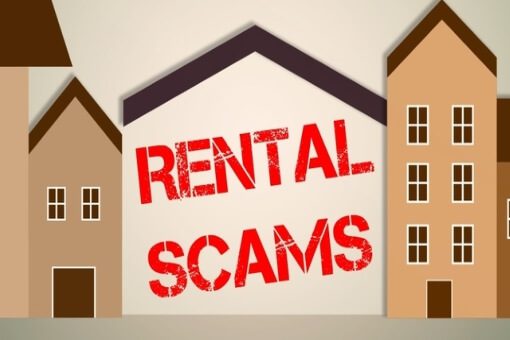Table of Contents
Introduction:
Finding a rental property can be an exciting but sometimes daunting task. Unfortunately, rental scams have become increasingly common, making it crucial for tenants to stay vigilant and aware. In this article, we will explore five signs of a rental scam and provide valuable tips on how to avoid falling victim to fraudulent schemes. Whether you’re looking to rent a property or find out the rental value of your property, being informed and cautious is key to protecting yourself from scams.
Unrealistically Low Rental Prices:
One of the most common signs of a rental scam is an unbelievably low rental price. Scammers often lure unsuspecting tenants by advertising a property at a price that seems too good to be true. Before you get excited about a bargain, take a step back and research the average rental prices in the area. If the advertised price is significantly lower than similar properties, it’s a major red flag. Scammers use this tactic to attract as many inquiries as possible and trick potential tenants into providing personal information or making upfront payments. To avoid falling for this scam, always cross-reference the rental price with reliable property listing websites or consult with local letting agents.
Requests for Upfront Payment or Wire Transfers:
Another warning sign of a rental scam is a landlord or agent requesting upfront payment or wire transfers before you’ve even seen the property. Scammers often insist on immediate payment without allowing you to view the property or sign a formal lease agreement. They may claim various reasons for the urgency, such as a high demand for the property or a need to secure it quickly. Legitimate landlords and agents typically follow standard procedures, such as providing a lease agreement, conducting property viewings, and accepting payments through secure channels. To protect yourself, never make any payment or wire transfer without proper documentation and assurance of the property’s legitimacy. Always insist on meeting the landlord or agent in person and verifying their identity before proceeding with any financial transactions.
Inability to Provide Proper Documentation:
A reputable landlord or letting agent will always be able to provide proper documentation, such as a tenancy agreement, proof of ownership, and necessary licenses. If you encounter a situation where the landlord or agent is unable or unwilling to provide these documents, it’s a clear indication of a potential scam. Legitimate landlords understand the importance of proper documentation and will be transparent about their ownership and legal obligations. Request copies of relevant documents and verify their authenticity through independent sources, such as the local council or land registry. By doing so, you can ensure that the rental agreement is legitimate and protect yourself from fraudulent activities.
Absence of Property Viewings or Site Visits:
Scammers often avoid property viewings or site visits as they want to minimise contact and maintain their anonymity. If a landlord or agent refuses to arrange a viewing or claims that it’s unnecessary due to various reasons, it’s a significant red flag. Visiting the property allows you to assess its condition, confirm its existence, and evaluate its suitability for your needs. Avoid renting a property without physically seeing it or having someone you trust view it on your behalf. Legitimate landlords and agents understand the importance of property viewings and will accommodate your request to ensure transparency and build trust.
Poor Communication and Unprofessionalism:
Scammers often exhibit poor communication skills, use generic email addresses, and have limited availability for phone calls or meetings. They may provide vague or evasive answers to your questions, making it difficult to obtain detailed information about the property or rental process. Professional landlords and agents value clear communication and promptly respond to inquiries. If you notice unprofessionalism, inconsistent information, or difficulty in reaching the landlord or agent, it’s a strong indication of a potential scam. Trust your instincts and stay away from any rental arrangements that make you uncomfortable or raise suspicions.
Conclusion:
When searching for a rental property or trying to find out the rental value of your property, it’s crucial to be aware of rental scams and take necessary precautions. By recognising the signs of a rental scam, such as unrealistically low prices, requests for upfront payment, lack of proper documentation, absence of property viewings, and poor communication, you can protect yourself from fraudulent activities. Remember to research average rental prices, verify the authenticity of the landlord or agent, insist on proper documentation, and never make any payments without proper safeguards. Stay vigilant, consult with reputable letting agents, and trust your instincts to ensure a safe and secure rental experience.

